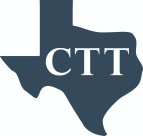Efficacy and Safety Study of Low-Dose Ondansetron For Adjunctive Therapy In Adult Patients With Obsessive-Compulsive Disorder
| Status: | |
|---|---|
| Conditions: | Psychiatric |
| Therapuetic Areas: | Psychiatry / Psychology |
| Healthy: | No |
| Age Range: | Any |
| Updated: | 7/16/2012 |
| Start Date: | January 2011 |
| End Date: | March 2013 |
A Multi-Center, Randomized, Double-Blind, Placebo-Controlled, Parallel Group Study To Evaluate The Efficacy And Safety Of Low-Dose Ondansetron For Adjunctive Therapy In Adult Patients With Obsessive-Compulsive Disorder Who Have Not Adequately Responded To Treatment With A Serotonin Reuptake Inhibitor
This study is to assess the efficacy and safety of two doses of ondansetron (0.5 mg and 0.75
mg) relative to placebo when administered twice daily as adjunctive therapy for adult
patients with Obsessive-Compulsive Disorder (OCD) who have not adequately responded to
treatment with a serotonin reuptake inhibitor (SRI).
This is a multi-center, randomized, double-blind, placebo-controlled, parallel-group study.
A sufficient number of patients will be screened to obtain approximately 150 patients
randomized to the double-blind portion of the study. This study will consist of at least 6
weeks of retrospectively documented SRI treatment (prior to screening), 6 weeks of
prospective SRI treatment after screening (run-in) but prior to randomization, and 12 weeks
of double-blind treatment with study drug (ondansetron 0.5 mg twice a day, ondansetron 0.75
mg twice a day or placebo twice a day).
All patients will have been maintained on a single SRI at the same dose throughout the
retrospective 6-week period and will continue the same SRI at the same dose throughout the
run-in and double-blind treatment periods.
The 12-week randomized, double-blind, placebo-controlled, parallel-group study will be the
"core period" for purposes of efficacy and short-term safety assessment. Patients completing
all 12 weeks of the core period will be offered an opportunity to participate in an
"extension period" where they will continue to receive treatment under double-blind
conditions for up to 12 months following the core period.
Treatment assignment in the extension period will be as follows: responders will continue on
the same double-blind treatment to which they were assigned in the core period (ondansetron
0.5 mg twice a day, ondansetron 0.75 mg twice a day, or placebo twice a day); non-responders
will be reassigned to continuing treatment according to their prior treatment assignment in
the core period (those who received placebo will be assigned to ondansetron 0.5 mg twice a
day, those who received ondansetron 0.5 mg twice a day will be assigned to ondansetron 0.75
mg twice a day, and those who received ondansetron 0.75 mg twice a day will continue
receiving ondansetron 0.75 mg twice a day).
Core period: Inclusion criteria for entry in prospective serotonin reuptake inhibitor
(SRI) period (screening):
- Male or female adults 18 years of age or older
- Able to understand the study and provide informed consent
- Subjects who are fluent in English and/or Spanish (speaking, writing, and reading)
- Willing and able to comply with the requirements of the protocol and follow
directions from the clinic staff
- Body mass index (BMI) ≥18 and ≤ 40 kg/m^2 (wearing indoor clothing without shoes)
- For female patients only: Female patients will be included if they are
post-menopausal for at least two years or sterilized, or if they are of childbearing
potential, they are not breastfeeding, their pregnancy test is negative, they have no
intention of becoming pregnant during the course of the study, and are using adequate
contraceptive drugs or devices. Medically acceptable methods of contraception that
may be used by the patient and/or her partner are: oral contraceptives, progestin
injection or implants, condom with spermicide, diaphragm with spermicide, IUD,
vaginal spermicidal suppository, surgical sterilization or abstinence. Females using
oral contraception must have started using the medication at least 8 weeks prior to
screening. Surgical sterilization must have occurred at least 6 weeks prior to
screening.
- Documented diagnosis of Obsessive-Compulsive Disorder (OCD) as defined by the
Diagnostic and Statistical Manual of Mental Disorders (DSM-IV-TR) criteria
- At screening, documented history of stable and current regimen of one of the
following five serotonin reuptake inhibitor (SRI) for at least 6 weeks prior to
screening at the minimum daily dosage listed:
- clomipramine (Anafranil®) 150 mg
- fluvoxamine (Luvox®) 200 mg or fluvoxamine CR (Luvox CR®) 200 mg
- fluoxetine (Prozac®) 40 mg
- paroxetine (Paxil®) 40 mg (does not include paroxetine CR (Paxil CR®))
- sertraline (Zoloft®) 100 mg
- Yale-Brown Obsessive-Compulsive Scale (Y-BOCS) score of ≥ 24
- Hamilton Depression Rating Scale (HAM-D) score of < 20
Inclusion criteria for randomization to double-blind treatment period:
- During run-in, documented use of stable and current regimen of one of the following
five serotonin reuptake inhibitor (SRI) for at least 6 weeks prior to screening at
the minimum daily dosage listed:
- clomipramine (Anafranil®) 150 mg
- fluvoxamine (Luvox®) 200 mg or fluvoxamine CR (Luvox CR®) 200 mg
- fluoxetine (Prozac®) 40 mg
- paroxetine (Paxil®) 40 mg (does not include paroxetine CR (Paxil CR®))
- sertraline (Zoloft®) 100 mg
- Demonstrated failure to adequately respond to serotonin reuptake inhibitor (SRI)
treatment, defined by the following 2 criteria after 6 weeks of prospective
treatment:
- Yale-Brown Obsessive-Compulsive Scale (Y-BOCS) score ≥ 21
- Less than 25% improvement in Yale-Brown Obsessive-Compulsive Scale (Y-BOCS)
score from Week -6 (screening)
- Hamilton Depression Rating Scale (HAM-D) score of ≤ 16
Extension Period - Inclusion criteria for randomization to double-blind extension
treatment period:
- Completing 12 weeks of treatment in the double-blind core period
- Demonstrating compliance in the judgment of the investigator, with both the SRI and
study drug as prescribed.
Core Period Exclusion Criteria:
- Presence of significant medical illnesses such as, but not restricted to,
cardiovascular, (including congestive heart failure and bradyarrhythmias), endocrine
or intestinal disorders that would interfere with the conduct of the study
- History of significant head injury, other significant brain trauma, or seizure
disorder (not including a single childhood febrile seizure)
- Clinically significant abnormal laboratory findings. Presence of electrolyte
abnormalities will be exclusionary.
- Clinically significant abnormal findings on electrocardiogram (ECG). Diagnosis of
congenital long QT syndrome will be exclusionary.
- Clinically significant abnormal findings on physical examination
- Positive pregnancy test
- Subjects who intend to donate blood or blood components while receiving study drug or
within 1 month of the completion of treatment
- Hoarding as the primary Obsessive-Compulsive Disorder (OCD) symptom (secondary
hoarding will be allowed)
- Obsessive-compulsive spectrum disorder as a primary disorder (secondary
obsessive-compulsive spectrum disorders will be allowed)
- Requiring active behavioral therapy during the study period (run-in and treatment
periods). Patients with a history of behavioral therapy may be enrolled as long as
they will not be actively engaged in behavioral therapy during the study. However,
booster sessions, occurring no more than quarterly (before and after the core study),
are allowed. Supportive and other forms of psychotherapy will be permitted during
the study as long as the patient has been engaged in such therapy for at least 8
weeks prior to study enrollment and there are no changes during the study.
- A history of substance dependence or drug or substance abuse, including alcohol
abuse, within the past 12 months. A history of nicotine dependence will not be
considered an exclusion criterion.
- Mental retardation or an IQ less than 70
- The following comorbid psychiatric conditions identified by current or past medical
history or as a result of the Mini-International Neuropsychiatric Interview (MINI) or
Structured Clinical Interview for DSM-IV-TR Axis II Personality Disorders (SCID-II)
psychiatric interviews will be excluded:
- Schizophrenia or other psychotic disorders
- Schizotypal personality disorder
- Bipolar disorder
- Gilles de la Tourette syndrome
- Autism and autistic spectrum disorders
- Eating disorders
- Combat-related post-traumatic stress disorder
- Other comorbid anxiety disorders will be permitted if the severity will not
interfere with study participation.
- Subjects who are believed to have suicidal or homicidal risk (i.e., after an
assessment by a qualified mental health professional if the C-SSRS screening
assessment warranted a suicidal risk assessment interview), or with a history of
suicidality in the previous 3 months
- Taking trazodone or other medicinal products that have been associated with
prolongation of the QT/QTc interval.
- Taking concomitant antipsychotic drugs, lithium, carbamazepine, oxcarbazepine,
phenytoin, anti-anxiety drugs (other than the current SRI for treatment of OCD), or
benzodiazepines prescribed for the treatment of anxiety. PRN use of FDA-approved
benzodiazepine or non-benzodiazepine hypnotics will be allowed. In addition, the
following 3 benzodiazepines will be allowed, provided that patients have been taking
them only at bedtime as a sleep aid for at least 12 weeks at the maximum doses noted
below:
- clonazepam (Klonopin®) up to 1 mg
- diazepam (Valium®) up to 5 mg
- lorazepam (Ativan®) up to 1 mg
- Taking more than one SRI at the time of screening or at any time in the previous 8
weeks
- A history of having failed more than 2 prior treatments, not including their current
course of treatment, with serotonin reuptake inhibitors (SRIs), including
clomipramine and selective serotonin reuptake inhibitors (SSRIs), or
serotonin-norepinephrine reuptake inhibitors (SNRIs) may only be considered after
consultation with the medical monitor. Failure is defined as inadequate response, in
the judgment of the treating physician, to an adequate dose of SRIs or SNRIs taken
for at least 8 weeks.
- Taking any antidepressant drugs (including St. John's Wort), at the time of screening
or at any time in the previous 8 weeks, other than the SRI identified in the
retrospective and screening periods
- Likely to use triptans at any time during the run-in or double-blind portion of the
trial
We found this trial at
22
sites
Click here to add this to my saved trials
Emory University Emory University, recognized internationally for its outstanding liberal artscolleges, graduate and professional schools,...
Click here to add this to my saved trials
Click here to add this to my saved trials
Click here to add this to my saved trials
Compass Research LLC Compass Research is a clinical research company dedicated to testing new medications...
Click here to add this to my saved trials
Click here to add this to my saved trials
University of South Florida The University of South Florida is a high-impact, global research university...
Click here to add this to my saved trials
Click here to add this to my saved trials
McLean Hospital McLean Hospital is a comprehensive psychiatric hospital committed to providing easy access to...
Click here to add this to my saved trials
Click here to add this to my saved trials
Click here to add this to my saved trials
Click here to add this to my saved trials
Click here to add this to my saved trials
Click here to add this to my saved trials
Click here to add this to my saved trials
Click here to add this to my saved trials
Click here to add this to my saved trials
Click here to add this to my saved trials
Click here to add this to my saved trials
Click here to add this to my saved trials
Click here to add this to my saved trials
Click here to add this to my saved trials





